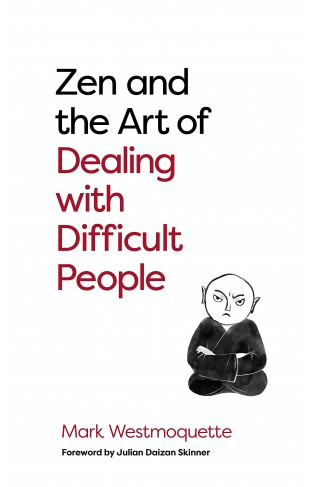This is a unique guide to coping with challenging people using practical Zen and mindfulness tools. It helps readers explore their reactions, break free from knee-jerk response patterns and see if these people may in fact prove to be useful teachers in life – troublesome Buddhas. This is a guide to applying the teachings of mindfulness and Zen to the troublesome or challenging people in our lives. Perhaps you can see there’s often a pattern to your behaviour in relation to them and that it often causes pain – perhaps a great deal of pain. The only way we can grow is by facing this pain, acknowledging how we feel and how we’ve reacted, and making an intention or commitment to end this repeating pattern of suffering. In this book, Mark Westmoquette speaks from a place of profound personal experience. A Zen monk, he has endured two life-changing traumas caused by other people: his sexual abuse by his own father; and his stepfather’s death and mother’s very serious injury in a car crash due to the careless driving of an off-duty policeman. He stresses that by bringing awareness and kindness to these relationships, our initial stance of “I can’t stand this person, they need to change” will naturally shift into something much broader and more inclusive. The book makes playful use of Zen koans – apparently nonsensical phrases or stories – to help jar us out of habitual ways of perceiving the world and nudge us toward a new perspective of wisdom and compassion.











